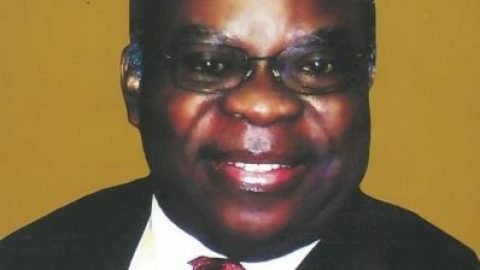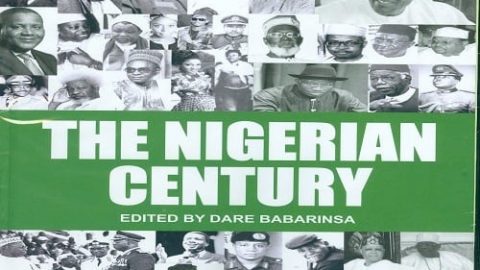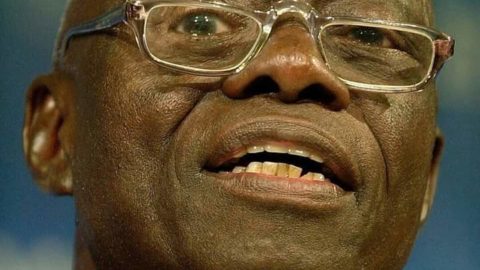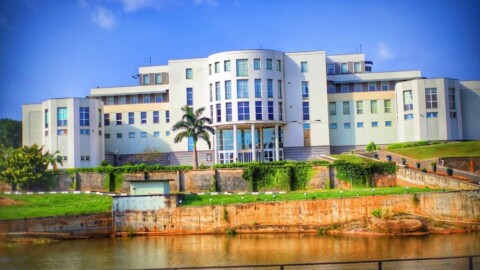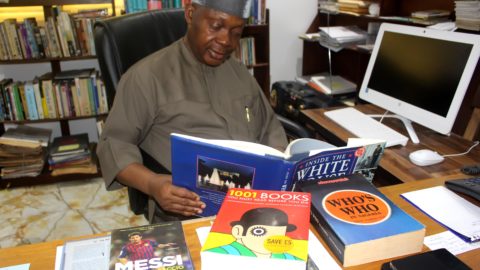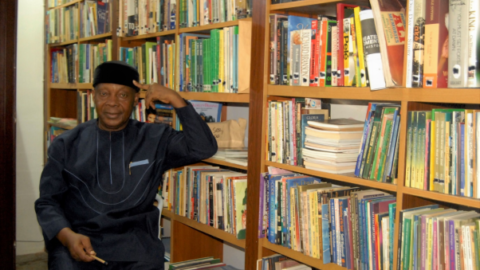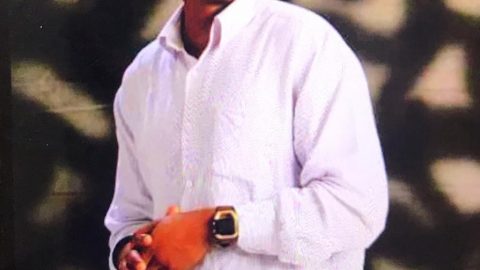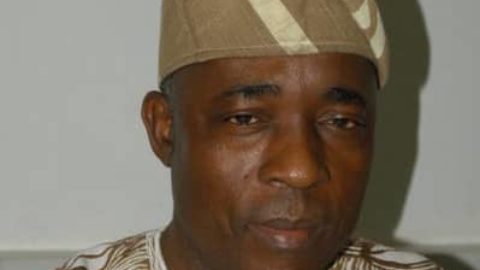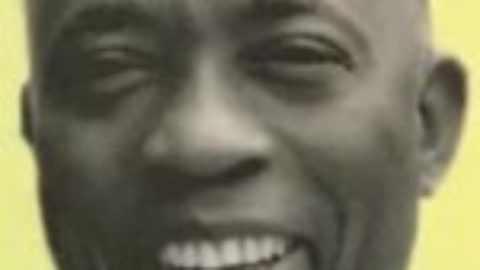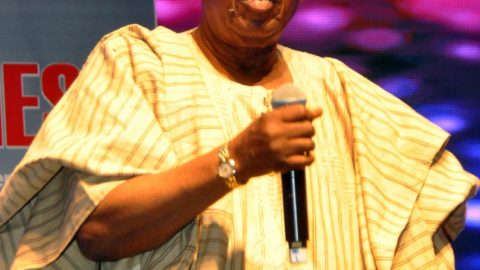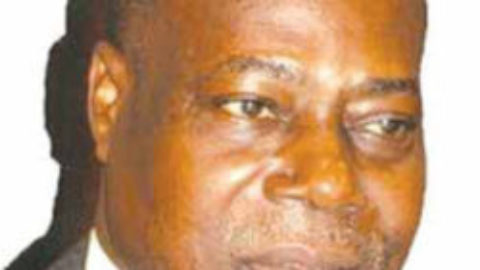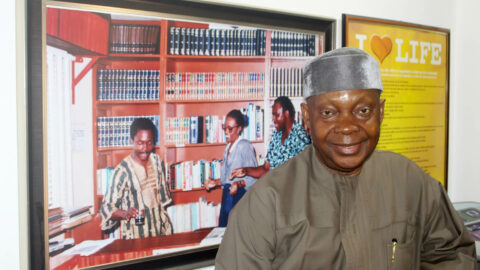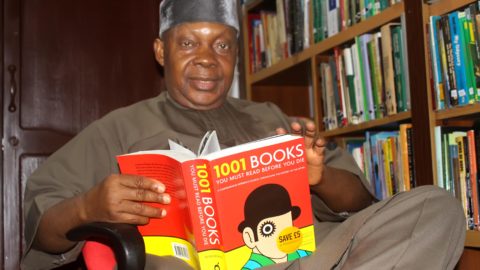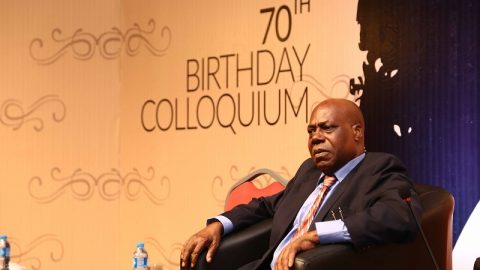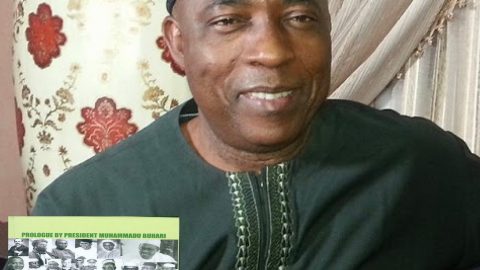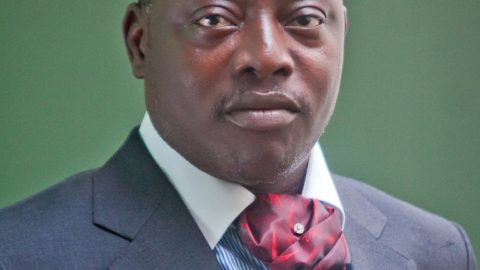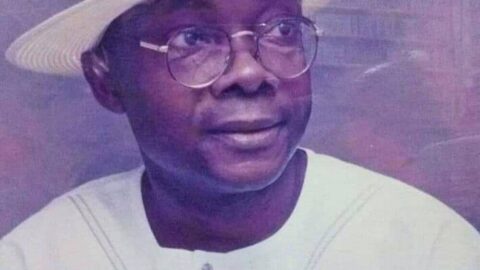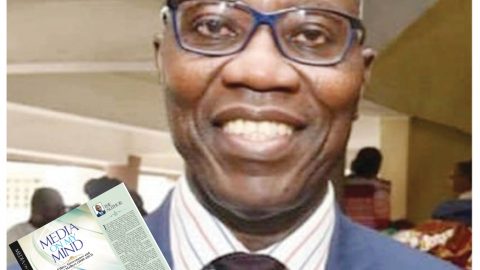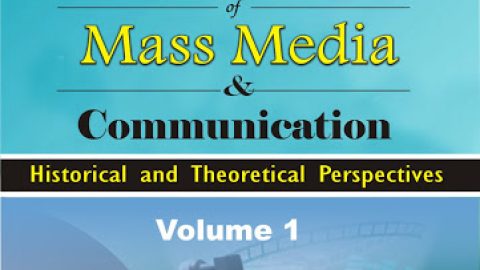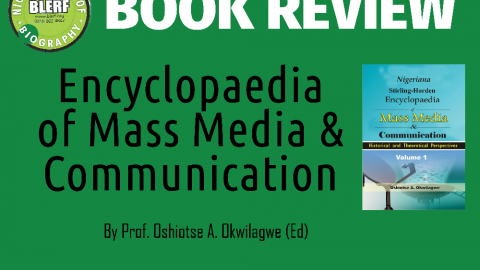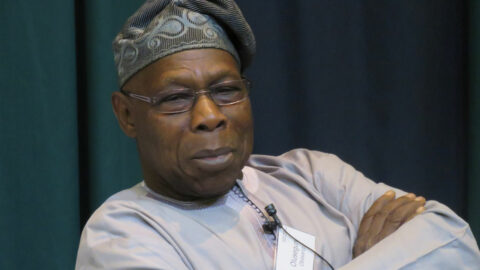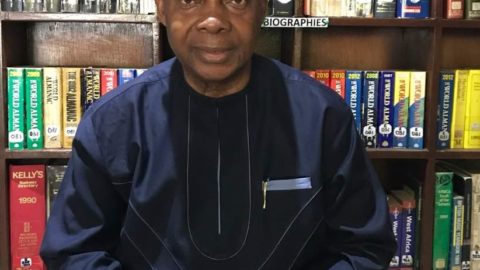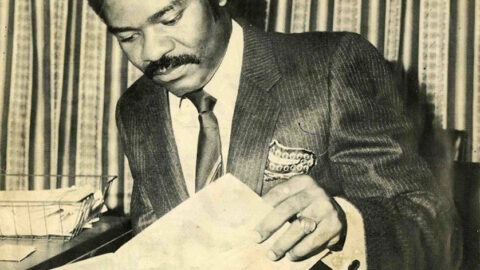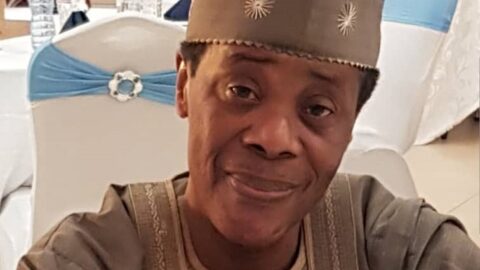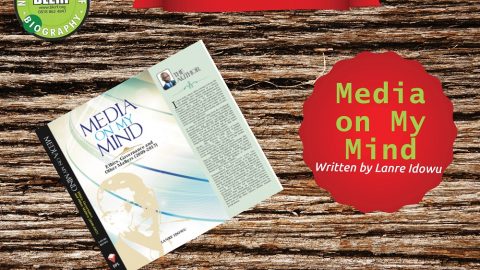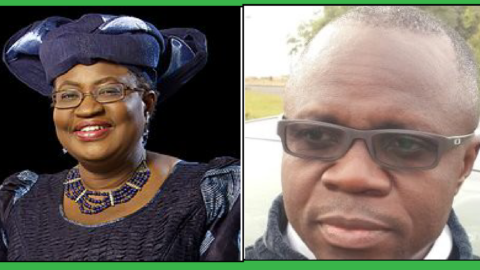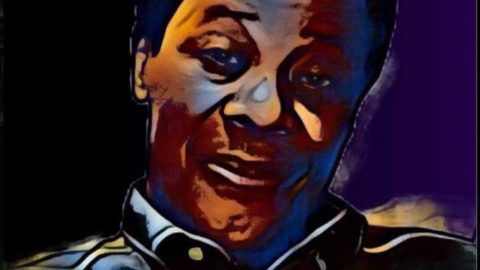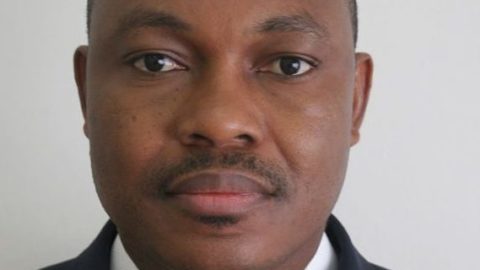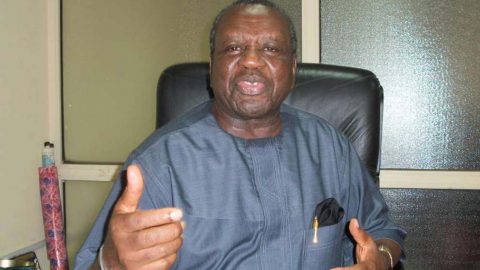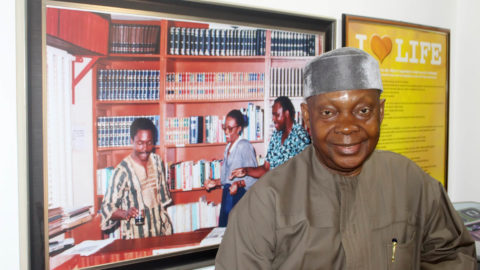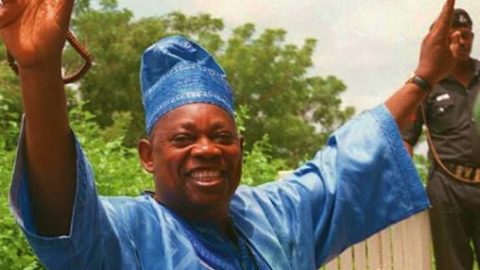BY SAM AKPE
Nyaknnoabasi Osso’s story is an account of a great intellect—signposted by passion, diligence, and top-notch organisational sense, with no eye for personal gain. Nyaknnoabasi is a librarian who has given the job a meaning that is outside the run of the mill. In his thinking and practice, a library is not only about books. It is principally concerned with meticulous, purpose-driven management of information and knowledge. Librarianship, he insists, is about a diligent search for relevant information, the processing of the findings, their storage in retrievable formats, and eventual use to meet set needs.
When a man has practised for 50 years in his line of training and yet believes much is still in store for him in the profession, the fellow cannot be ordinary. Nyaknnoabasi loves the smell of books. His collection of the written word, in digital and hard copies, is a reflection of how his mind works. In the last 50 years, hardly has any day passed that he has not contributed to knowledge and problem-solving by giving out information in various formats to people — even from the pulpit where he serves as a pastor.
Always pregnant with freshly-minted ideas, Nyaknnoabasi has refused to slow down. His inner mind is the mental equivalent of a construction site; always busy. He has an unparalleled enthusiasm for books; and believe me; he has acquired and read not a few of them. He adores biographies. The next thing he consumes with such fervour is gospel music.
At 67, Nyaknnoabasi’s routine is unusual. He cannot be found sleeping in the afternoon. He goes to bed late in the evening and is religiously awake before midnight. From then till the following evening, his brain and his hands are at work.
A few years ago, someone moved into the neighbourhood where I live. I was ignorant of the person’s identity. Then one morning, I had a telephone call. As I tried to establish the identity of the caller, an authoritative voice silenced or rather pre-empted my enquiry with: “My name is Nyaknnoabasi Osso. I am your new neighbour, and I am at your gate.” I was out of Abuja. On my return, we met. That meeting is still on.
Today August 27, Nyaknnoabasi is 67 years old. Imagine that little boy from an unremarkable village called Ete in Ikot Abasi, Akwa Ibom State. Once upon a time, he sold kerosene by the roadside so that he could go to school. Primed to study medicine; he got attracted to the aroma of new books. That was in 1971. The boy has since become a man—a father and a grandfather. Let’s start from the beginning.
His mother had eight of them; all boys. He was the last. Seven died before he was born. None died at birth. They were all born alive and celebrated before death visited. Some died just before their first birthdays. They simply slept and did not wake up. None of them lived long enough to see the other’s birth. The unproven belief was that the same child was making rounds of torture in the family.
Therefore, when the last child was born, no one gave him a chance of survival. Prior to his birth, his mother had given up on child-bearing. His father vowed to remain committed to his only wife—no second wife, no concubine.
But that was not to be. His mother decided to do what the Biblical Sarah did with Abraham when their marriage produced no child. She told the husband: “I’m not going to stay here alone and die alone. I’m going to get you someone—someone that will give us children.” She found the husband a beautiful young woman; as wife.
The man, a committed Christian, protested. But he later succumbed to some social pressure; and accepted the free-will offering from his wife. Both entered the other room. However, to show his first wife that his love for her was still strong and intact, he spent most of the nights with her. Two excitements unfolded in quick succession: both women became pregnant; almost at the same time.
Nine months later, it was delivery time. While the labour lasted, the senior wife was obviously more interested in the unborn baby than her own life. She pulled the midwife aside and verbally declared her will: if I die in the process, this baby should be named Nyaknnoabasi, meaning I have given him to God. From multiple premonitions and the advantage of personal history, she was convinced, though without any tangible proof, that another boy was on the way.
Soon, words reached her husband in the farm: your wife is in labour. He quickly left everything, mounted his bicycle and pedalled breathlessly in the direction of the local birth attendant. Before the expectant father reached the birth spot, the baby was in the safe hands of the midwife. A boy! As soon as he set his eyes on the baby, with teary eyes, he declared, I am leaving this one in God’s hands—Nyaknnoabasi. There was no consultation between husband and wife over the name. It came by divine, spontaneous inspiration.
Fast forward. The child, Nyaknnoabasi Osso, was special in many ways. From the community primary school, he passed through the legendary Regina Coeli Secondary School founded by Irish missionaries in 1955. Both in First School Leaving Certificate Examination and the West African Examination Council tests, he emerged with the best scores, in science and art subjects. Life was difficult for him. Though he was the only child of his mother, his father however had 10 other children from the second wife. But his mother was determined to give him the best education — both formal and informal.
His mother did something peculiar. As a way of guarding against another sudden death, she never allowed Nyaknnoabasi to sleep in the afternoon — afraid that he would not wake up. She had experienced the same nightmare from her deceased children. It was time to avoid the risk. When he moved into the dormitory during his secondary school days, the village elders collectively sent a message to the school authority: exempt this boy from siesta; he is a special case.
From Ete in Ikot Abasi where he was born, his first trip outside his state was to the University of Ibadan, where his uncle, Professor Eno Jumbo Udo, lectured. With excellent performance in the sciences, Nyaknnoabasi was already programmed to study medicine. But that did not happen because he was instead offered admission to study chemistry. He stubbornly turned it down because he could not endure the smell of chemicals.
This implied that he had to wait for the next entrance examination. With that decision, he condemned himself to certain undesirable home chores. For 10 months, he was a babysitter. As the only child of his mother, he never took care of a baby before then. There was no time to learn. He had to feed the baby and wash the napkins. At night, he washed plates and polished the wooden tiles. His bedtime was 2 a.m. Wake up time was 5 a.m.
Then came the good news. One of his friends; Ukoyen, a post-graduate student, informed Nyaknnoabasi of a vacancy for a library assistant at the university. He applied, and got the job. That was in 1971. He was 17. It marked the beginning of a journey with a one-way ticket.
In fact, when he went for the interview, he was enraptured by the smell of new books, and was irresistibly charmed by the manner books were arranged on the shelves. It reminded him of how his mother used to arrange clothes and kitchen utensils back home. She drummed it into him that a disorganised person always led a purposeless life.
Driven by a gigantic zeal, Nyaknnoabasi applied and was admitted to the library school. But his uncle refused to pay his fees; insisting that his nephew must study medicine. Almost frustrated, Nyaknnoabasi sought help from far and near. He pulled through.
On graduation in 1975, he met Professor Donald Ekong, Vice-Chancellor of the newly established University of Calabar. It was on Ekong’s invitation that Nyaknnoabasi left UI on a leave of absence to work at the UNICAL library. On arrival in Calabar, he was informed that Ekong was out of the country. What? By divine direction, an old classmate introduced him to Chief Ekei Essien Oku — one of Nigeria’s earliest chartered librarians and the first woman chief librarian in Nigeria. He had an instant job.
One Monday morning, Nyaknnoabasi noticed a familiar face in the library. He had not met Ray Ekpu before; but had read his column the previous day in Sunday Chronicle — a paper edited and made famous by Ray. He walked up, greeted Ray, and offered to help with any information the editor needed. Conversation started.
Ray got curious and asked: “I have not seen you before, are you new here?” Nyaknnoabasi’s impressive self introduction fetched him a lunch invitation. Ray informed him of the absence of a good library at the Nigerian Chronicle and asked for a feasibility study.
That assignment took the young librarian to major media organisations across Nigeria. His rich, voluminous report led to the establishment of one of the best media library in Nigeria. Unfortunately that library is no more. It was razed down recently during a mass protest against police brutality.
His effort was rewarded with a job offer, which he could not reject. Encouraged by Ray, Nyaknnoabasi travelled to both the US and UK; made contacts and got loads of books from international bodies. He loved it!
Shortly after, Dele Giwa, the then editor of Sunday Concord was in Calabar for the Nigerian Guild of Editors conference. He stopped over to see his friend, Ray. When he needed materials to write his column, Ray proudly referred him to Nyaknnoabasi.
Something dramatic happened when Nyaknnoabasi pulled out a folder from his drawer containing cuttings of Dele’s writings from Daily Times to the Sunday Concord. Dele was visibly impressed. That encounter triggered a relationship that eventually took Nyaknnoabasi to Newswatch magazine in 1984.
It was at Newswatch that his career assumed an international prominence. His first assignment was to gather background materials and develop a data bank on 1000 issues which the magazine considered important to focus on as it took off. This took Nyaknnoabasi back to high profile media houses in the UK and the USA.
He visited the BBC Media Enquiry Services; TIME magazine; the Economist; the Financial Times; the New York Times; the British Library at Corlindale, North London; Europa Publishers, CNN, Newsweek; Who’s Who in America, World Almanac Book, Editors and Publishers, among others.
Besides gathering the required data, his principal mission was to understudy, return and build a media library that would compete with the best anywhere in the world. It is believed by those who should know that he did a good job of it.
At a time, Nyaknnoabasi became more popular at Newswatch than most of the journalists there. The popular belief was that any information Nyaknnoabasi could not provide in two minutes, or at least tell you the sure way of getting it, did not exist. Mysteriously, he did this at a time computer or the internet was unheard of in this part of the world. It still remains a puzzle how he did it. As if that was not enough, he went ahead to publish the globally acclaimed reference book: Newswatch Who’s Who in Nigeria; 1989.
This was one of the high points of his professional ingenuity. The book, a compendium of background data on Nigeria’s most outstanding individuals, attracted international commendations and subtle enquiry: ‘how did he do it?’
As soon as the book came off the press, America’s Department of State bought 300 copies and invited Nyaknnoabasi over. They wanted to be briefed on how he managed to get all the information in the book, in a country that was completely blind to or slim on information management.
During his six weeks stay in US as international visitor, Nyaknnoabasi was taken to Columbia University School of Journalism where he had interactive sessions with the authority, on the book. He also had sessions with library officers of the Federal Bureau of Investigations (FBI), Central Intelligence Agency (CIA) and the Pentagon. They needed to know how Newswatch Who’s Who in Nigeria was conceived and executed without the required technology for such a project.
On his return to Nigeria, Nyaknnoabasi was decorated with various awards by recognised professional bodies. One day, he read a story in the Sunday Times about African Leadership Forum — an international leadership think-tank established by Obasanjo. While others saw the report as a mere news item, Nyaknnoabasi turned it into a huge opportunity. Twenty four hours after one phone call, he had lunch with the retired general. It was the beginning of a new phase of a working relationship that lasted for 25 years.
Drawing from his international exposure, Nyaknnoabasi submitted a proposal to Obasanjo for the establishment of the first Presidential Library in Africa, located in Abeokuta. Though put in abeyance for several years when Sani Abacha sent Obasanjo to jail, the proposal was dusted up in 1998, with Nyaknnoabasi placed directly in charge of its execution.
This created opportunities for him to visit several Presidential Libraries in the United States. He met with three living American presidents in the US, including the late President George Walker Bush, President Jimmy Carter, and President Bill Clinton. He couldn’t meet the late Donald Reagan in person; but he interacted with members of his family. He even attended a Sunday School Class with Carter and family.
Located on a 32-hectare land in Abeokuta, the Olusegun Obasanjo Presidential Library, the brainchild of Nyaknnoabasi Osso, is the first of its kind in Africa; the first outside the United States of America.
While serving with President Obasanjo as special assistant on library, research and documentation, Nyaknnoabasi underwent a study of information management system at the Executive Office Library in the White House. During the period, he interfaced extensively with officers of NARA—National Archives and Record Administration. The tutelage prepared him for his assignment in the Villa.
I thought I was merely going to pay a brief tribute to a neighbour on his 67th birthday, and 50 years of unprecedented professional achievements. But I have ended up writing a biography; because it is impossible to condense the life of Nyaknnoabasi Osso in few words! Let me simply say: happy birthday, Sir! Congratulations!


